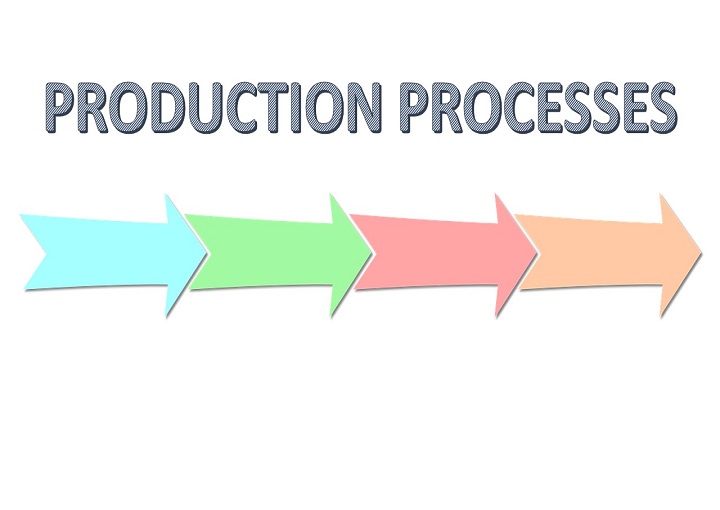Discover the world of production processes with our comprehensive overview. From raw materials to finished products, learn how things are made and the various methods used in modern manufacturing. Explore our guide now and gain a deeper understanding of the processes behind everyday items
From the clothes we wear to the food we eat, everything we consume goes through a production process. In this article, we will take a closer look at what production processes are, how they work, and their significance in the modern world. We will cover everything from the definition of production processes to different types of production processes, their applications, and the challenges involved.
What are Production Processes?
Production processes refer to a series of steps that transform raw materials into finished goods. These processes are often complex and involve several stages, from the acquisition of raw materials to the production and distribution of the final product. The goal of production processes is to create products that meet the needs of consumers while maximizing efficiency and minimizing waste.
Types of Production Processes
There are several types of production processes, each with its unique characteristics and applications. Some of the most common types include:
1. Continuous Production Process
A continuous production process involves the uninterrupted production of goods, where raw materials are continuously fed into the production line. This type of process is typically used to produce large quantities of standardized products, such as paper, steel, or chemicals.
2. Batch Production Process
A batch production process involves the production of a specific quantity of a product at one time. This type of process is commonly used for products that require a specific level of customization, such as pharmaceuticals, cosmetics, or food products.
3. Job Production Process
A job production process involves the production of a unique product, often customized to meet the specific needs of a customer. This type of process is common in industries such as construction, where each project requires a unique set of materials and specifications.
Production Process Steps
Regardless of the type of production process, all production processes involve several steps. Some of the most common steps include:
1. Material Acquisition
The first step in any production process is the acquisition of raw materials. This may involve sourcing materials from suppliers, extracting resources from the environment, or recycling existing materials.
2. Material Preparation
Once raw materials are acquired, they must be prepared for the production process. This may involve cleaning, sorting, grading, or processing the materials to meet specific requirements.
3. Production
The production phase involves the actual transformation of raw materials into finished goods. This may involve several sub-steps, such as mixing, cutting, shaping, or assembling materials.
4. Quality Control
Quality control is an essential step in any production process. It involves testing products to ensure they meet specific quality standards and making adjustments as needed.
5. Packaging and Distribution
Once products are produced and quality tested, they must be packaged and distributed to customers. This may involve several sub-steps, such as labeling, packaging, and shipping the products to retailers or end-users.
Applications of Production Processes
Production processes are used in a wide range of industries, from manufacturing and construction to food production and healthcare. These processes are essential for creating the products we rely on every day and have significant economic and social implications.
Challenges of Production Processes
While production processes have many benefits, they also come with several challenges. Some of the most common challenges include:
1. Environmental Impact
Many production processes have significant environmental impacts, such as pollution, waste, and resource depletion. Addressing these impacts requires a focus on sustainable production practices and the use of clean technologies.
2. Supply Chain Management
Production processes are often part of a broader supply chain, which can be complex and difficult to manage. Ensuring efficient and reliable supply chain management is critical to the success of any production process.
3. Labor and Human Rights
Many production processes rely on human labor, which can present challenges related to working conditions, fair wages, and human rights. Addressing these challenges requires a focus on labor standards and social responsibility.
Conclusion
Production processes are a crucial part of modern society, creating the products we use every day and driving economic growth. By understanding the different types of production processes, their applications, and the challenges involved, we can work towards creating more efficient, sustainable, and socially responsible production systems.
FAQs
What is the goal of production processes?
Ans. The goal of production processes is to create products that meet the needs of consumers while maximizing efficiency and minimizing waste.
2. What are the types of production processes?
Ans. The most common types of production processes include continuous, batch, and job production processes.
3. What are the steps involved in production processes ?
Ans. Production processes involve several steps, including material acquisition, material preparation, production, quality control, and packaging and distribution.
4. What are the challenges of production processes?
Ans. The challenges of production processes include environmental impact, supply chain management, and labor and human rights issues.
5. How can we address the challenges in production processes?
Ans. Addressing the challenges of production processes requires a focus on sustainable production practices, efficient supply chain management, and social responsibility.

